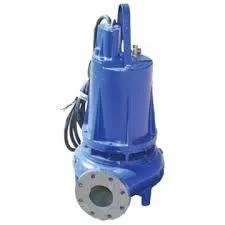English
- Afrikaans
- Albanian
- Amharic
- Arabic
- Armenian
- Azerbaijani
- Basque
- Belarusian
- Bengali
- Bosnian
- Bulgarian
- Catalan
- Cebuano
- Corsican
- Croatian
- Czech
- Danish
- Dutch
- English
- Esperanto
- Estonian
- Finnish
- French
- Frisian
- Galician
- Georgian
- German
- Greek
- Gujarati
- Haitian Creole
- hausa
- hawaiian
- Hebrew
- Hindi
- Miao
- Hungarian
- Icelandic
- igbo
- Indonesian
- irish
- Italian
- Japanese
- Javanese
- Kannada
- kazakh
- Khmer
- Rwandese
- Korean
- Kurdish
- Kyrgyz
- Lao
- Latin
- Latvian
- Lithuanian
- Luxembourgish
- Macedonian
- Malgashi
- Malay
- Malayalam
- Maltese
- Maori
- Marathi
- Mongolian
- Myanmar
- Nepali
- Norwegian
- Norwegian
- Occitan
- Pashto
- Persian
- Polish
- Portuguese
- Punjabi
- Romanian
- Russian
- Samoan
- Scottish Gaelic
- Serbian
- Sesotho
- Shona
- Sindhi
- Sinhala
- Slovak
- Slovenian
- Somali
- Spanish
- Sundanese
- Swahili
- Swedish
- Tagalog
- Tajik
- Tamil
- Tatar
- Telugu
- Thai
- Turkish
- Turkmen
- Ukrainian
- Urdu
- Uighur
- Uzbek
- Vietnamese
- Welsh
- Bantu
- Yiddish
- Yoruba
- Zulu
Telephone: +86 13120555503
Email: frank@cypump.com
Nov . 23, 2024 13:05 Back to list
industrial wastewater pumps
Industrial Wastewater Pumps An Essential Component in Wastewater Management
In the realm of industrial operations, the efficient management of wastewater is crucial not only for environmental protection but also for regulatory compliance and overall operational integrity. One of the critical components that facilitate effective wastewater management in industrial settings is the industrial wastewater pump. These specialized pumps are designed to handle the unique challenges posed by the diverse nature of industrial effluents, which can include solids, chemicals, and other hazardous materials.
Industrial wastewater pumps are engineered to perform under demanding conditions. Unlike standard pumps, these machines must be capable of managing a wide variety of fluids, often characterized by high viscosity, corrosive properties, or significant particulate matter. This requires pumps that are robust in construction, typically utilizing high-grade materials that can withstand harsh chemicals to prevent damage and ensure longevity. Common materials include stainless steel, cast iron, and specialized polymers, which are selected based on the specific properties of the wastewater being handled.
One of the primary types of industrial wastewater pumps is the submersible pump
. These pumps are designed to operate underwater, allowing them to effectively remove water from basements or holding tanks while minimizing the risk of environmental contamination. They are particularly useful in situations where space is limited or where the wastewater needs to be moved from a deep source. Submersible pumps are known for their high efficiency and ability to handle both liquid and solid waste, making them a popular choice in industries such as construction, mining, and food processing.industrial wastewater pumps

Another common type of pump used in wastewater treatment is the centrifugal pump. These pumps utilize rotational energy to transfer wastewater efficiently. They are particularly effective for transporting large volumes of water at a low pressure, making them ideal for moving wastewater from one stage of the treatment process to another. Centrifugal pumps are favored for their ability to handle clean or slightly contaminated water, making them suitable for many industrial applications.
Choosing the right industrial wastewater pump involves various considerations, including flow rate, pressure requirements, and the specific contaminants in the wastewater. An improperly chosen pump can lead to inefficiencies, increased energy consumption, and potential environmental hazards. Therefore, industries often work closely with pump manufacturers and specialists to select the appropriate pumping solutions tailored to their unique needs.
Moreover, the maintenance of these pumps is pivotal to ensure their optimal performance. Regular inspections, monitoring for wear and tear, and timely repairs can prevent unexpected breakdowns, which can lead to costly downtime and regulatory fines. Many manufacturers now offer monitoring systems that provide real-time data on pump performance, allowing operators to proactively address potential issues before they escalate.
In conclusion, industrial wastewater pumps play a vital role in the management of wastewater within various industrial processes. By facilitating the safe and efficient transport of industrial effluents, these pumps help organizations meet environmental regulations and contribute to sustainable water management practices. As industries continue to evolve, advancements in pump technology will further enhance the capabilities of wastewater management systems, ensuring that they remain both efficient and environmentally responsible.
-
ISG Series Vertical Pipeline Pump - Chi Yuan Pumps Co., LTD.|Advanced Hydraulic Design&Energy-Efficient Solutions
NewsJul.30,2025
-
ISG Series Vertical Pipeline Pump - Chi Yuan Pumps Co., LTD.
NewsJul.30,2025
-
ISG Series Vertical Pipeline Pump - Chi Yuan Pumps Co., LTD.|energy-efficient fluid handling&industrial durability
NewsJul.30,2025
-
ISG Series Vertical Pipeline Pump - Chi Yuan Pumps | Advanced Engineering&Industrial Efficiency
NewsJul.30,2025
-
ISG Series Pipeline Pump - Chi Yuan Pumps | High Efficiency, Energy Saving
NewsJul.30,2025
-
ISG Series Vertical Pipeline Pump-Chi Yuan Pumps|High Efficiency&Reliable Performance
NewsJul.29,2025










